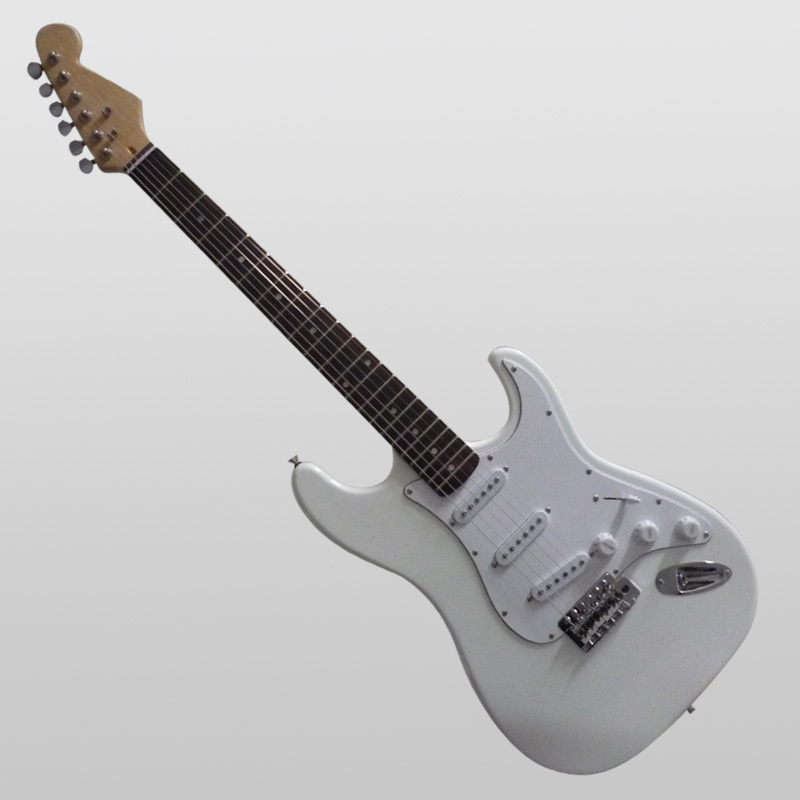You have to take care of the musical instrument to get the best out of it. We have put together some basic guitar maintenance tips so you can look after your acoustic guitar.
1. Wipe It Down After You Play Your Acoustic Guitar
Once you have finished playing your beginner electric guitar spend some time wiping it down with a clean, dry cloth before putting it away. Cleaning your guitar each time you play can help to avoid oil and dirt from your fingers damaging the wood and strings. Choose a cloth that has been specially designed for musical instruments to avoid materials and ingredients (such a silicone) that may damage the guitars finish. Focus on cleaning oil from the fingerboard and strings and dust from around the bridge.
2. Put It Away
The most important tip to looking after your guitar is to put it away when it is not in use. Most wholesale acoustic guitars are made from a single panel of wood making them susceptible to damage when left lying around. Whilst it may seem a lot of effort to put your guitar away every time you take a break, it's better to put that effort in then to risk your guitar getting bumped into or knocked over. So as soon as you have finished playing put your guitar back in it's case or consider using a guitar stand to securely hold your instrument.
If you are travelling with the guitar store it in a case or gig bag. This will help to protect it from the elements and any potential damage.

3. Replace the Strings
When necessary you will need to replace the strings on your guitar. How often they need to be changed will depend on how often you play your guitar. A person that plays daily and performs regularly may need to change their strings every few weeks, in comparison a person that plays once in a while may need to change their strings every few months. As strings age they lose their pitch, so as you become more attune to your guitar you will know when you need to change the strings.
Whilst it is not as difficult as it may seem, if you haven't changed the strings on your custom electric guitars before we recommend taking your guitar to a luthier or music shop to have them changed by a professional. Whilst there, they can show you how it is done so that you can change them yourself in the future. When the strings have been removed this is a great time to thoroughly clean the guitar.
4. Oil the Fingerboard
It is recommended, to stop your fingerboard from drying out, that you oil it when you change the strings (or at least a couple of times a year). Rub lemon, orange, or linseed oil sparingly with a clean, dry cloth into the fingerboard.
5. The Humidity
When storing your baritone electric guitar aim to keep it in a place that has humidity levels of 45-55%. High humidity can cause the wood on your guitar to swell, whereas low humidity can cause the wood to dry out and crack - both of which you want to avoid. To keep track of the humidity you can use a hygrometer and if you are concerned your guitar may have humidity damage take it to a luthier or music shop for them to check.
6. Not Too Hot, Not Too Cold
When storing your acoustic guitar you need to keep the temperature and humidity in mind. Extreme temperatures and changes in temperature can both have a negative effect on your guitar. Avoid storing your guitar in hot or cold cars, in direct sunlight, or near air conditioners. If you are bringing your guitar from one temperature to another (i.e. from a cold car into a heated house) we recommend leaving your guitar in the case for some time to allow it to acclimatise to the change in temperature.
7. Loosen the Strings
Not planning to play your guitar for a while? Then we recommend loosening the strings. Over time, tension from the strings can cause the bridge to lift from the guitar. Loosening the strings during periods the guitar is not in use can help to avoid this from happening. If you find that the bridge has lifted from the guitar take it to a professional to be repaired.
8. Insure Your Guitar
If you have damaged your junior electric guitar we always recommend taking it to a luthier or guitar specialist to have it repaired rather than using home remedies that could further damage it down the line. For peace of mind we also recommend getting your guitar insured against any damage that could occur.

